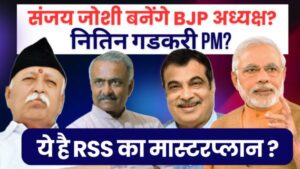Monkeypox: The New Pandemic?

Just when the world is on track to recovery from the unprecedented COVID-19 pandemic, a new outbreak has taken the world by the storm – monkeypox. Seventy countries have confirmed cases of monkeypox, as per Reuters. The World Health Organisation (WHO) declared monkeypox a public health emergency of international concern (PHEIC) when confirmed cases crossed the 20,800 mark.
India alone has reported nine cases of the virus, including four cases where the person has no travel history.
The monkeypox cases are indeed concerning and deadly. However, according to experts, their chances of becoming pandemic like COVID-19 is zero per cent.
What is Monkeypox?
According to WHO, monkeypox is a case of the virus being transmitted from animals to humans known as Viral Zoonosis in scientific terms. It has symptoms identical to smallpox but is not as severe as smallpox. If not severe, the monkeypox symptoms last 2-4 weeks, with a fatality ratio of 3%-4%. The virus transmits from close contact from an infected person to another person, infected animal to a person and/or from materials contaminated with the virus.
People infected with the virus may face symptoms such as rash with blisters on the face, hands, feet, body, eyes, mouths or genitals. They may also suffer from fever, swollen lymph nodes, headaches, muscle and back aches and experience low energy. Most people may recover without treatment, but in extreme cases, patients require special medical attention in extreme cases.
The disease mainly occurs in tropical rainforest areas of west and central Africa, and the virus sometimes gets exported to the outside world.
To protect yourself from the infection, the WHO recommends avoiding close contact with someone with the symptoms. Furthermore, avoid skin to skin, face to face and mouth to mouth, including sexual interaction with someone facing the symptoms—moreover, clean hands, objects, surfaces, bedding, towels and clothes regularly. If you can’t avoid close contact with an infected person or while handling bedding, towels and clothes of an infected person, wear a mask. Also, using protective measures during sexual intercourse, such as a condom, may not prevent monkeypox infections.
Expert’s take on Monkeypox
As monkeypox is raging globally, I reached out to Dr Samar Husayn to get answers to some critical questions revolving around monkeypox. Dr Husayn is working as an assistant professor in the Department of Community Medicine at the Army College of Medical Sciences, Delhi and formerly worked with the National Center of Disease Control as a Consultant Epidemiologist.
According to Dr Husayn, a “multi-country outbreak of monkeypox is currently underway in places where the virus has not been typically found before, in Europe, the Americas, Africa, the Western Pacific, and countries of the Eastern Mediterranean.”
As to how monkeypox is different from COVID-19, “Covid-19 contains a single strand of genetic material, which is also known as RNA, whereas Monkeypox carries a double-stranded genetic code in DNA.”
“There’s no point in panicking over monkeypox; it won’t force the planet into lockdown, though it stands to make many lives miserable.”
On chances of the monkeypox virus becoming a pandemic like COVID-19, the expert stated, “Monkeypox may not be a second COVID, but governments and public health officials are not reacting swiftly enough to break the chains of human transmission. We should reject blind panic over threats that aren’t virulent, transmissible, or stealthy enough to cause a deadly outbreak.”
Is India ready to counter the outbreak if it occurs? The expert said, “India had issued guidelines for Monkeypox management even before the first infection was detected.”
“In May, the Union Health Ministry had directed the National Centre for Disease Control and the Indian Council of Medical Research to keep a close watch on the situation. Airport and port health officers were also asked to be vigilant.”
Dr Husayn further stated that the union health ministry had issued detailed management guidelines to counter the monkeypox virus. The procedures include the collection of samples, isolation and treatment of patients, and contact tracing. Also, the health ministry issued steps to manage the virus: patient isolation, protection of compromised skin and mucous membranes, rehydration therapy and nutritional support, symptomatic treatment and monitoring, and treatment of complications.
What sort of measures the administration and government should take to keep the monkeypox cases under control? The expert stated, “Public health investigations are ongoing in non-endemic countries that have identified cases, including extensive case finding and contact tracing, laboratory investigation, clinical management and isolation provided with supportive care.”
“Genomic sequencing, where available, has been undertaken to determine the monkeypox virus clade(s) in this outbreak. Vaccination for monkeypox, where available, is being deployed to manage close contacts, such as health workers. WHO is convening experts to discuss recommendations on vaccination.”
Dr Samar Husyn concluded, “Since the outbreak began to expand in early May 2022, WHO has taken this extraordinary situation very seriously.”
“WHO has been issuing public health and clinical guidance, engaging with communities actively and convening hundreds of scientists and researchers to speed up research and development on Monkeypox and the potential for new diagnostics, vaccines and treatments to be developed.”
Moreover, Vice President and Chief Quality Officer at the University of Maryland Upper Chesapeake Health – Faheem Younus (MD, FIDSA, FACP, CPE), answered questions regarding the monkeypox dilemma.
Dr Younus emphasised on the context of the monkeypox disease, how it differs from COVID19, and what to do and what not to do.
On Monkeypox becoming a pandemic, the expert said “context matters” and highlighted that six other PHEIC-like declarations happened in past years, but not all became pandemics. He further mentioned – the 2009 Swine flu, 2014 Polio, 2014 Ebola, 2015 Zika, 2018 K. Ebola and 2019 COVID.
On monkeypox being the same as COVID-19, Dr Younus stated, “(Monekypox is) Important and concerning, but not the same (as COVID-19). Don’t fall for fear-mongering.”
On how monkeypox is different to COVID-19, the expert said, “COVID is peculiar because it is a novel viral strain, easily transmissible through the respiratory route, attacks a vital organ (lungs) and is deadly.”
“Monkeypox is harder to transmit. (It) requires close skin contact with lesions and fluid. Soiled surfaces and beddings are also a risk. Rarely respiratory droplets can transmit.”
Dr Younus stressed, “it’s not a new virus, and we have available vaccines to fight it. This (Moneypox) is not COVID.”
According to the expert, we need widely available rapid testing centres to fight monkeypox.
“Current state, only specialised labs can perform the tests, turnaround times are many days allowing the disease to spread unchecked.”
We further need the strategic use of “ring vaccination” where the outbreaks have been identified, as per Dr Younus.
The expert also stated the requirement of communication – is “calm and timely messaging”.
As per him, the projections are “cases will likely rise for months before they fall. The disease may spread in specific groups and geographies. Don’t be alarmed.”
Subsequently, Dr Faheem Younus stressed that we don’t need Google experts, fear-mongering, turning this into business, politicising this virus and stigmatising any group to fight against the virus.
Ultimately, the expert urged everyone to stay humble and balanced.
By Faiz Ahmed Siddiqui, ASCO, Amity University – Noida





